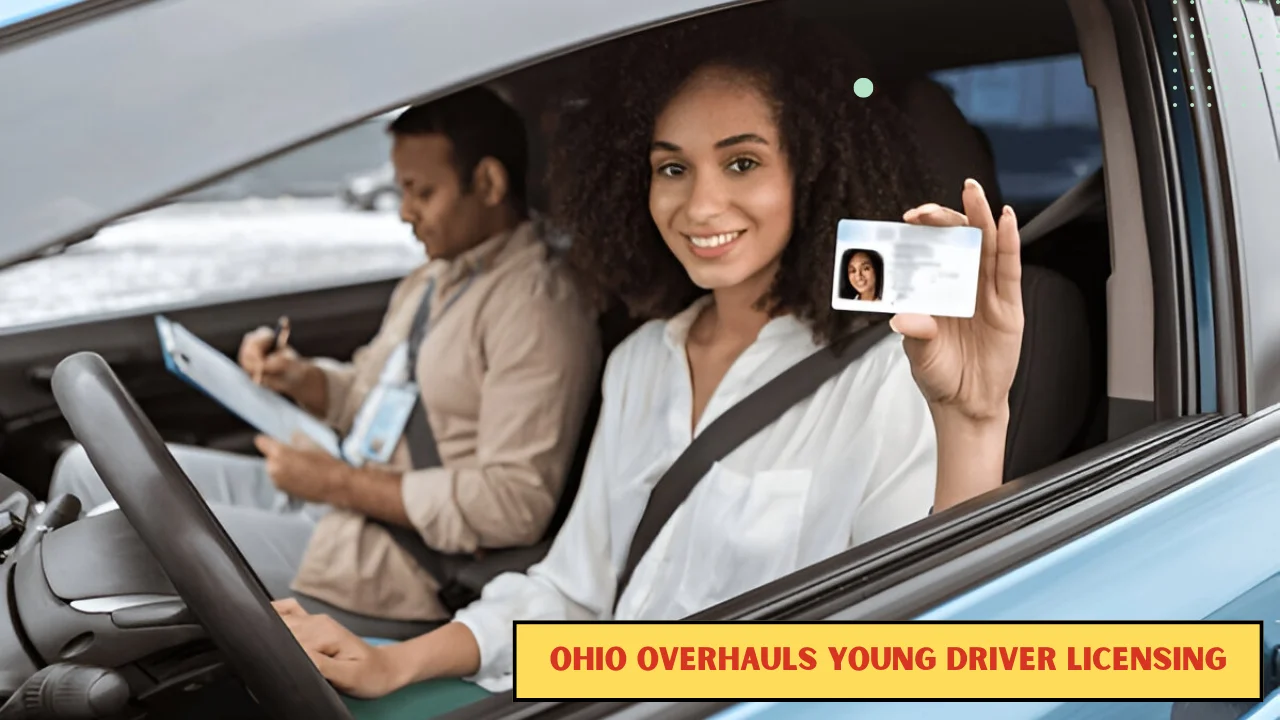Ohio Overhauls Young Driver Licensing: Education and Supervised Training Now Required for Ages 16–21
In a significant effort to improve road safety, Ohio has revamped its driver’s licensing process for residents 21 and younger. The new law, recently signed by Governor Mike DeWine as part of the state’s biennial budget, introduces stricter training and practice requirements for aspiring young drivers.
Expanded Driver’s Education Requirements for Young Adults
Starting July 2025, Ohioans between 16 and 21 years old must now complete a comprehensive driver’s education program, alongside 50 hours of supervised driving, before being eligible for a license. Previously, only those under 18 faced these requirements, leaving an exemption for 18- to 21-year-olds that has now been eliminated.
Why the Change?
The updated regulations are rooted in alarming crash statistics: data from the Ohio Department of Public Safety highlights a higher incidence of accidents among new drivers aged 18 to 21 who bypassed formal training. By closing this loophole, Ohio hopes to better equip young motorists with the skills and experience necessary for today’s increasingly complex roads.
Also read: Canada Retirement Age Update 2025: What New OAS & CPP
What’s Changed? A Quick Comparison
| Age Group | Old Rule | New Rule (Effective 2025) |
|---|---|---|
| Under 18 | Driver’s Ed + 50 practice hours | No change |
| 18–21 | No formal training required | Must complete Ed + 50 practice hours |
| 21+ | No training required | No change |
Logging Practice Hours: What’s Required?
Under the revised system, all drivers under 22 must log 50 hours of supervised practice behind the wheel—10 of which must occur after dark. Each session must be overseen by a licensed adult aged 21 or older. These hours must be documented and verified in a logbook, which new drivers must submit prior to their road test.
Key Points:
50 hours of supervised driving practice
Also read: EPFO Pension Update 2025
At least 10 hours at night
Supervisor must be 21+ with a valid license
Logbook required and signed before testing
The state’s aim is for learners to gain firsthand experience in diverse driving scenarios, from highway navigation to adverse weather and busy city streets.
Also read: Kia Syros: The Stylish New SUV That’s Set to Disrupt the Indian Market
School Support: Excused Absences for Driver Training
Though legislators opted not to integrate driver’s education back into public school curricula, the new law does make room for learning. Ohio school districts are now required to grant up to eight hours of excused absences so students can attend private driving lessons—provided those sessions don’t overlap with essential classes like math or English.
| Provision | Details |
|---|---|
| Excused Absence Limit | Up to 8 hours allowed for private driving lessons |
| Eligible Students | Those enrolled in private driver’s ed programs |
| Academic Restriction | Cannot miss core academic subjects |
This adjustment is designed to help teens balance their driving education with school obligations, reducing obstacles to licensing compliance.
Community Response: Broad Support from Experts and Parents
Road safety advocates and parents have overwhelmingly backed the reforms. David Burke, a veteran driving instructor, notes that the previous exemption left many young adults ill-prepared, raising accident risks for everyone on the road.
Parents like Amy Hura also voiced support, highlighting how modern infrastructure—think roundabouts and intricate highway interchanges—requires more than basic driving skills. These new rules ensure every young Ohio driver receives equal preparation, regardless of age.
What’s Next? Implementation and Looking Forward
Ohio’s Bureau of Motor Vehicles urges prospective drivers and their families to enroll in approved education programs early and maintain diligent practice logs. Driving schools statewide are updating their curricula to meet the new standards.
With these reforms officially in place as of July 2025, the state is optimistic about seeing a substantial decrease in youth-involved crashes, creating safer roads for everyone.
